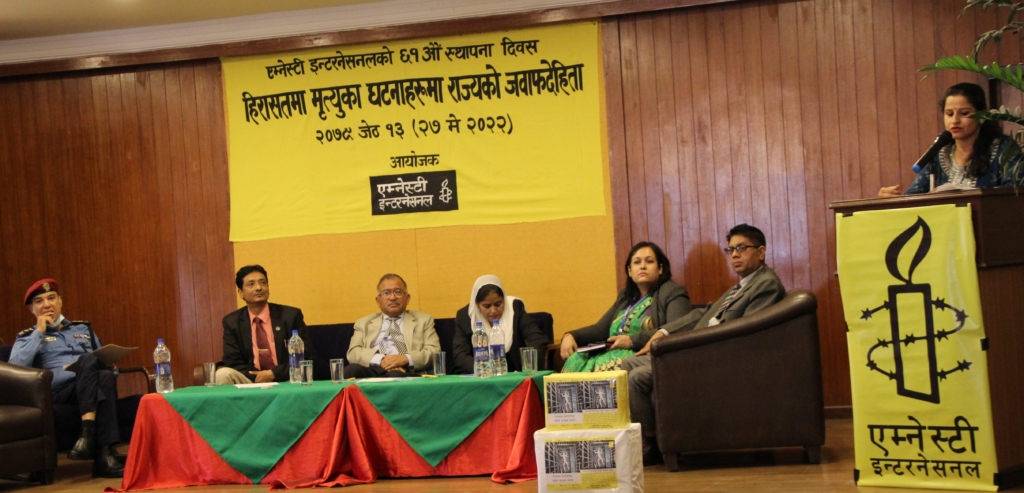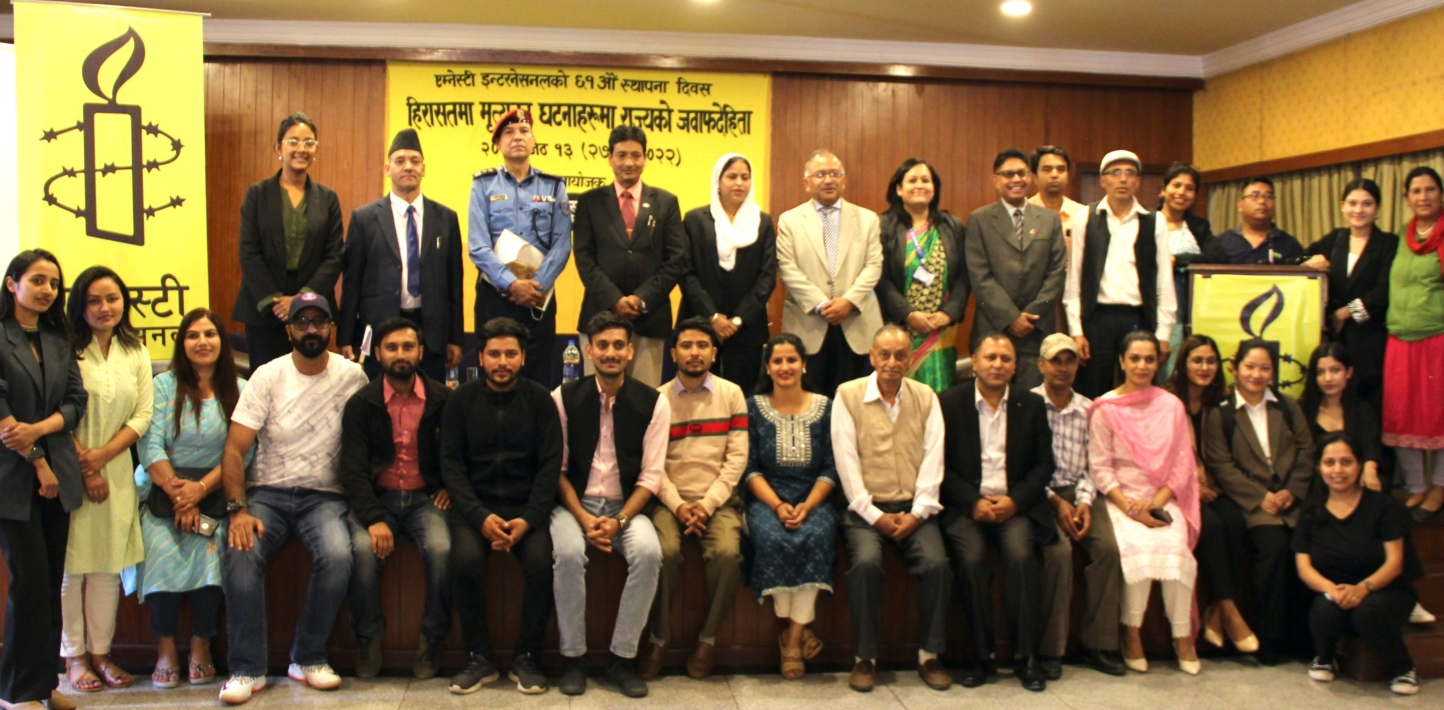To mark the 61st anniversary of the beginning of the Amnesty International as a global human rights movement, Amnesty International Nepal organized a panel discussion entitled ‘State’s Accountability for Deaths in Custodies’ in Kathmandu on 27 May.
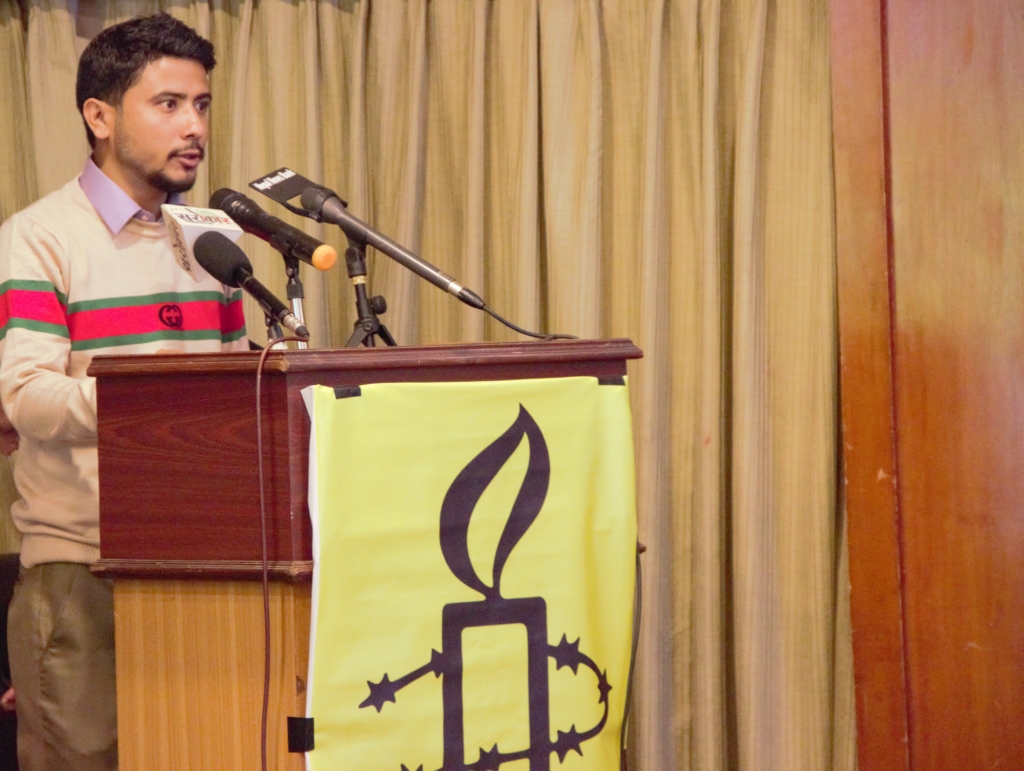
Amnesty Nepal Chair Bipin Budhathoki inaugurated the discussion and welcomed the panelists and participants in the programme expressing Amnesty Nepal’s resolve to fight injustices including in collaboration and partnership with all the stakeholders.
He stated that Amnesty Nepal was in a phase of building the organization’s new strategic goal, and that the issues of impunity and accountability will form one of the core areas of priority.
Tufan Neupane, a journalist with Kantipur Daily, made a graphic presentation of the cases of deaths in custodies. In the last five years, there were at least 22 such cases of deaths as reported in the media with no prosecution and conviction on any of these cases.
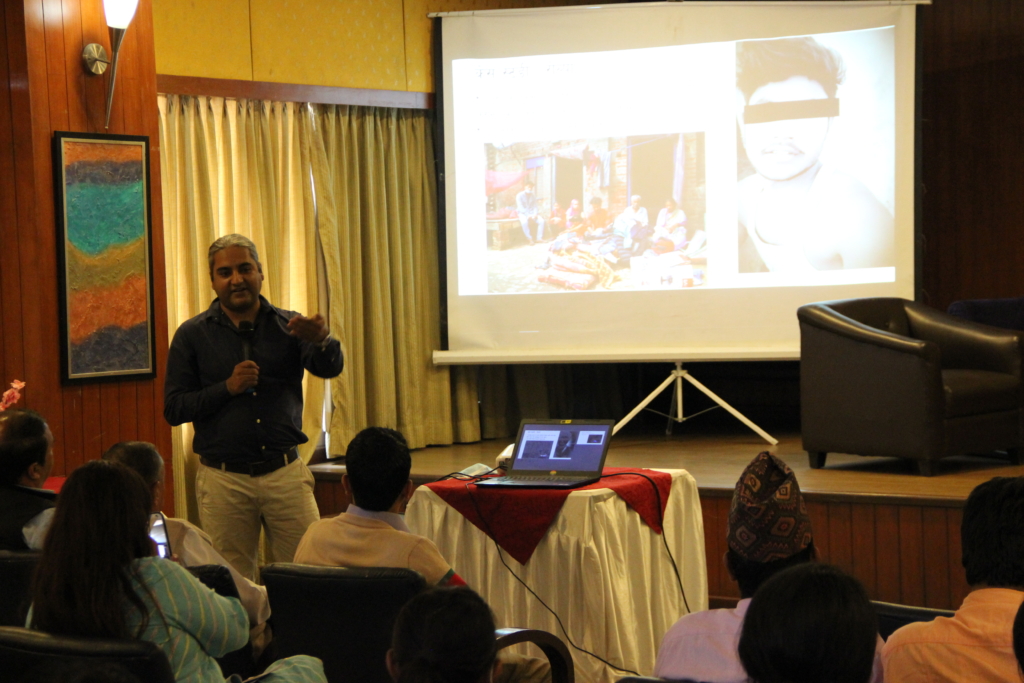
In his analysis of the trend and pattern of such deaths, the victims are mostly from the marginalized communities, including Dalits, Janajatis and Madhesis. While suicide is cited as a major reason of these deaths by the police, the families do not believe the police narrative and presume that these deaths occurred due to torture and ill-treatment. There is hardly any independent investigation into these allegations; police usually refuse to register the first information report, and the public prosecutors are not forthwith and cooperative in bringing such cases to the courts.
Amnesty Nepal is on a campaign since 2020 calling on the Prime Minister of Nepal to urgently undertake law and policy initiatives to prevent such deaths including by establishing accountability and serving truth, justice and reparations to the victims. Amnesty Nepal has collected over 27 thousand petitions addressed to the Right Honourable Prime Minister Sher Bahadur Deuba.
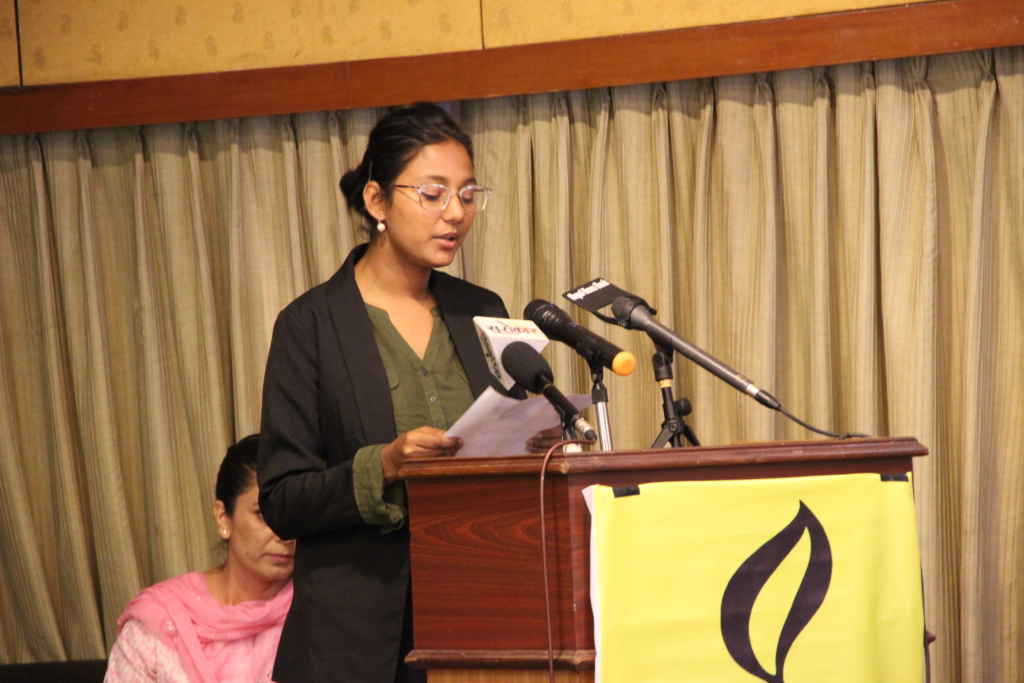
Then followed a lively panel discussion which was broadcast live here.
The panel comprised of Aruna Joshi, Joint Secretary under the Human Rights and International Treaty Agreement Division from the Office of the Prime Minister and Council of Ministries, Assistant Attorney General Hari Prasad Regmi from the Office of Attorney General, Acting Secretary of National Human Rights Commission Murari Kharel, Superintendent of Police Jayaraj Sapkota from Kathmandu District Police Office, former Commissioner of NHRC Mohna Ansari, and Hark Rawal, Vice-President of Nepal Bar Association.
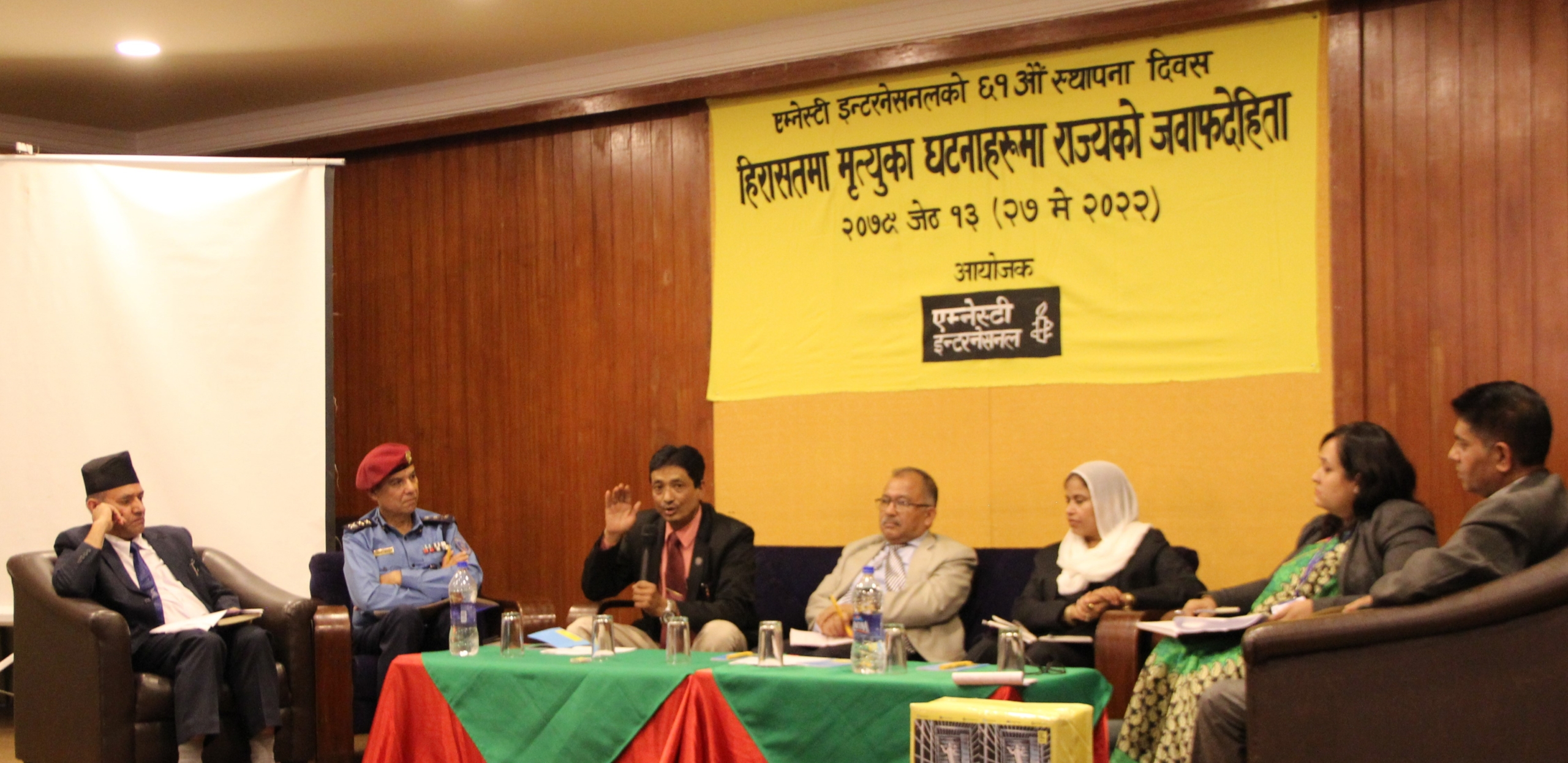
Panel Discussion
The panel was moderated by Amnesty Nepal’s Director Nirajan Thapaliya.
The panelists dissected the rule of law challenges especially in terms of holding state accountability in cases of custodial deaths in Nepal. The panelists also undertook a deep surgical analysis of the criminal justice system in Nepal which often fails those who need to be served justice. The speakers accepted and acknowledged the flaws and aberrations in law and practice in Nepal and expressed their commitment towards addressing these.
At the end of the panel discussion, Nepal’s former Chief Justice Honourable Kalyan Shrestha, crystallizing the discussions to a concluding frame delivered his special and deeply moving remarks.
“The issue of custodial deaths has not yet been dealt with seriously in Nepal,” he said. “The new criminal codes have criminalized torture and ill-treatment and have made detailed provisions on how investigation officers should do their investigations. The continuing trend of deaths in custodies warrant for a deeper reforms in our systems and processes. Why is it that the detainees feel prompted to commit suicides, even if the cases be of suicide? Can state promote an environment of suicide for those who are under its control and watch?”, he questioned. He also remarked that there is a deep deficit of trust between the public and law enforcement agencies in Nepal and that this needs to be addressed to ensure we have a system based on rule of law and human rights.
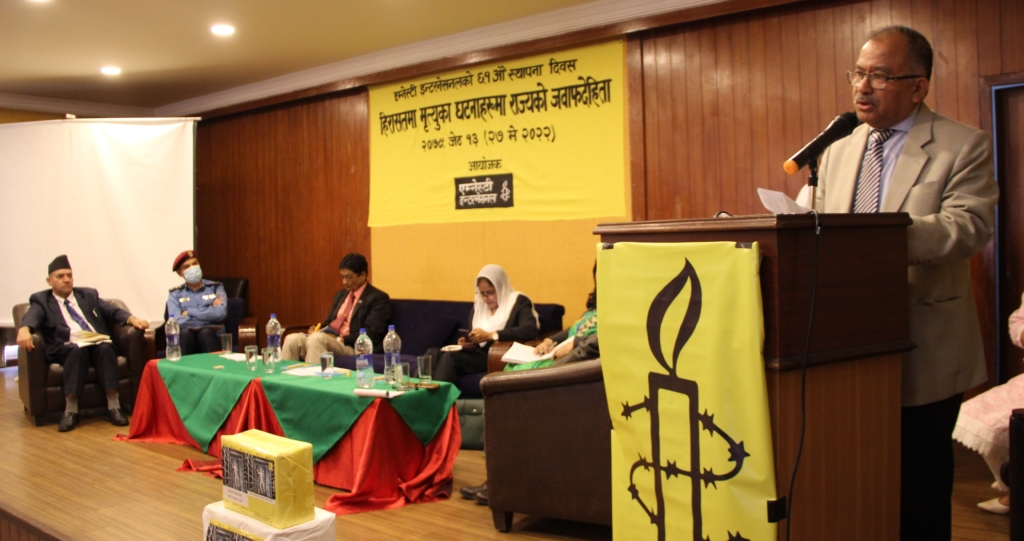
Shachita Kuikel, General Secretary of Amnesty Nepal, concluded the programme, thanking the panelists and the participants.
